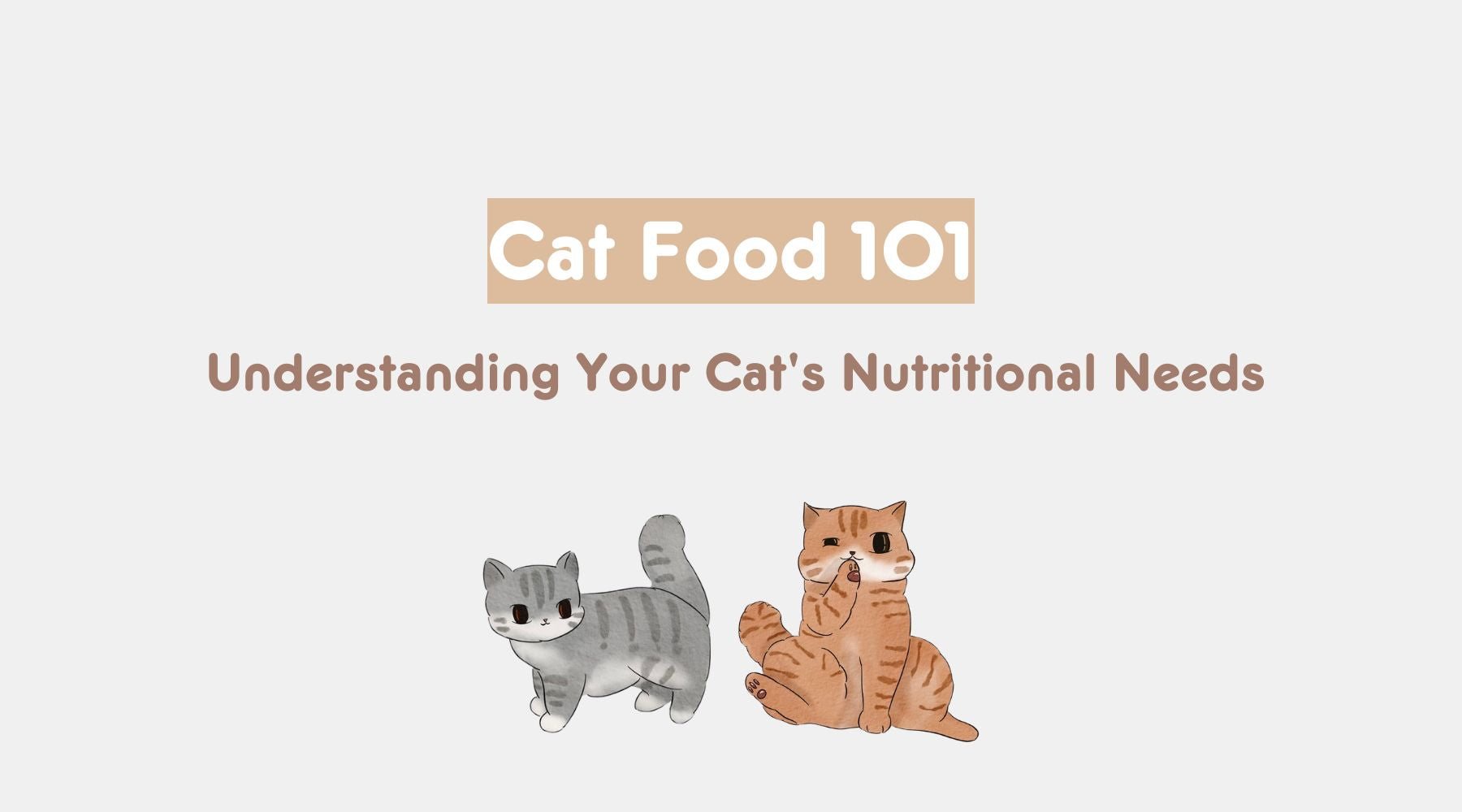
Cat Food 101: Understanding Your Cat's Nutritional Needs
With so many options available in the market for cat food, how do you choose the right cat food for your feline friend? Before selecting cat food, it’s essential to understand your cat's nutritional needs and health status to determine what is healthy and nutritionally rich.
-
High Protein, Moderate Fat, Low Carbohydrate Diet
First and foremost, it’s important to recognize that cats are carnivores, and their primary source of nutrition should be high-quality animal protein. Therefore, a daily diet should focus on high protein, moderate fat, and low carbohydrate content. Many commercial cat foods have a high carbohydrate content, which can lead to obesity, elevated blood sugar levels, and increased burden on the pancreas and liver over time. -
Moisture in Cat Food is Crucial!
In addition to a high protein, moderate fat, and low carbohydrate diet, cat owners should also pay attention to the moisture content in their cat's food. For example, a 4 kg cat needs to consume at least 200-240 cc of water daily. Because cats naturally do not drink much water, it’s important to provide them with moisture through their food. Dehydrated cats are more prone to health issues such as kidney disease, urinary stones, and bladder inflammation, which can lead to severe conditions like kidney failure. -
Are Canned Foods the Ultimate Cat Food?
There are two types of canned cat food: Complete Diet and Complementary. Complete Diet contains vitamins, minerals, amino acids, and other nutrients calculated to meet a cat's daily requirements. Supplementary cat food is designed to enhance, not replace, a cat's main diet.
Many canned foods contain processed ingredients and artificial additives, which can be burdensome to a cat’s health. When choosing canned cat food, opt for those with simple ingredients, primarily consisting of meat protein, and avoid options with excessive plant-based proteins (like wheat, corn starch, and soy).
There is no "best" cat food in the world, only the most suitable food for your cat. Especially for picky eaters, it’s crucial to understand their health status and nutritional needs to ensure they grow healthy and become the happiest cats!

Leave a comment